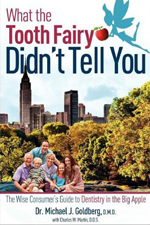I don’t know about you but when I hear the “S” word, my eyes glaze over. The reality of a government in paralysis is beyond my ability to control or understand so I just don’t worry about it. I did my civic duty and voted. I’ve even written letters!
I don’t worry about it and neither should you. While we’re unable to change Washington, we can control our own actions. And, we can make decisions that protect us.
I can’t give you advice about money. Should you buy gold? Invest in the Market? These decisions are beyond my expertise.
One of the decisions you make every day is about your health. Staying healthy is the best strategy to save money. Preventing health problems goes a long way to reduce your dependence on expensive treatment and expensive medications, not to mention the time it takes away from other pursuits.
When it comes to dental health, prevention is the key to long-term overall health and minimizes long-term financial expense.
Who can help you make such decisions? NOT YOUR INSURANCE COMPANY.
Insurance companies care about their bottom line. If you don’t receive the correct care or have ‘big problems’ they have limited their exposure. That’s one reason why they limit their yearly maximum payout.
So whom should you trust?
Trust yourself. Trust your intuition. Gather information (read my book). Look at your health care provider’s eyes. Do they truly care about you? Do they rush you in and out without answering your questions? Do they take the time to ask about your health and habits? Do they look out for the cause of problems and not just recommend treatment for conditions?
Does insurance cover the time it takes to do thorough exams, histories and preventive care? You know the answer. If you’re lucky they’ll cover a “cleaning or 2 a year.” What if you periodontal care more often? You’re out of luck….and money.
During all times and especially during fiscally challenging times, preventing problems and uncovering causes makes sense. It makes sense for your overall health and for your oral health.
We’re living longer and as a result have to take better care of out bodies. Over 35 years, it’s impressed me that those who take the best care spend the least.
Don’t worry about things out of your control. Controlling the things you can such as your dental care and oral health makes more sense now than ever.
To your health and wellness,
Michael
